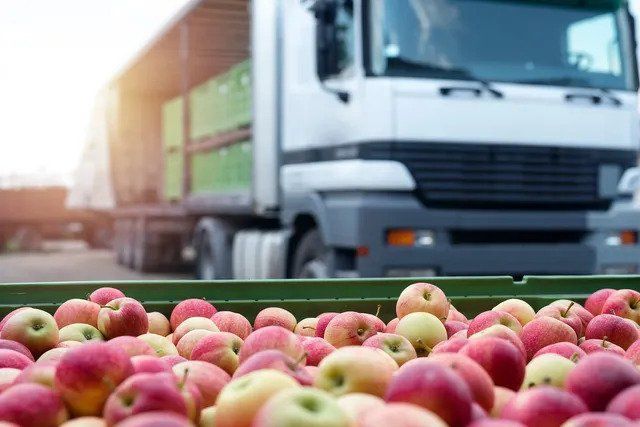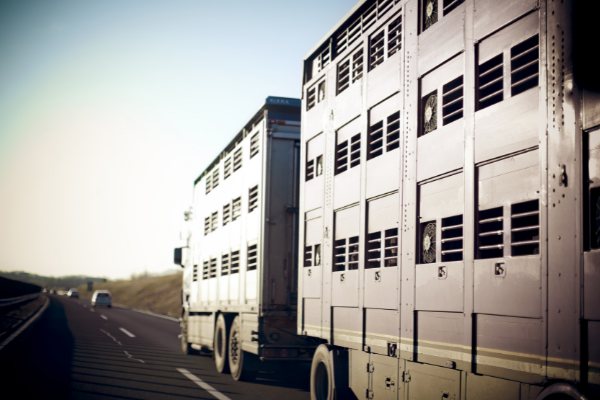BY:
SHARE:

In the Border Target Operating Model, HMRC propose that under Authorised Operator Status (AOS), a trader, with appropriately trained personnel and internal control systems, can achieve an authorisation that will evidence that their level of expertise is sufficient to perform physical and identity import checks.
However, authorisation will need to be piloted to evaluate working practice feasibility, both for the trader’s operational competency and for biosecurity risks. The governments’ aim is for this to be a Great Britain-wide scheme. Likewise, should the pilot demonstrate non-feasibility, a decision may be made for AOS not to proceed.
Responsibility for performing physical import checks will be delegated to private operators who meet the eligibility criteria. The criteria will include:
- Having their business premises designated as a Control Point
- A given set of infrastructure requirements
- Require in-depth systems audits of processes.
The Animal and Plant Health Agency and SASA (Science and Advice for Scottish Agriculture), will be responsible for auditing Authorised Operators. Any training will be tailored to the goods the Authorised Operator actively imports, and competence will be determined through a formal ‘sign-off’ procedure by the Animal and Plant Health Agency/SASA. Regular refresher training for Authorised Operators will be incorporated in the requirement.
Although there will be costs associated with required training and the audit aspects of the scheme, Authorised Operator Status brings the potential for a range of benefits to be realised, subject to a successful pilot. Namely:
- Authorised Operators (AO) will have flexibility to conduct inspections at their business premises (Designated Control Point) at a time that suits them, not having to await Plant Health Service’s attendance.
- This will result in produce being entered into free circulation as soon as Customs and plant health checks are completed, thus reducing the AO’s “time to market” window.
Summary of the Authorised Operator Status (AOS) scheme for the import of Plants and Plant Products
The eligibility criteria will include being:
- UK registered business - The business must be established in the UK for Customs purposes; registered with the relevant UK plant health service as a professional operator; have entered into an agreement with Animal and Plant Health Agency and SASA.
- Designated ‘Authorised’ and ‘Responsible’ Person
- The Authorised Person conducts the checks, while the Responsible Person will have board level authority, act as the point of contact, and have overall accountability for the organisation’s status.
- Documented internal processes for inspection and management of biosecurity risks
- Bio secure premises (Control Point designation and Customs authorisation)
- Training on conducting plant health checks, including detection and preliminary identification of quarantine pest and disease
- The business will document how any conflicts of interest will be managed internally and how risks to impartiality will be minimised.
- Authorised Operator responsibilities will include:
- Ensuring the supplier has necessary phytosanitary certificates
- Submitting a pre-notification (uploading a scanned copy of the phytosanitary certificate) and Customs declaration
- Declaring goods for inspection
- Performing risk-based physical and identify checks, and reporting the outcome of those inspections to the relevant UK plant health authority.
Conflict of Interest
The UK authorities consider that there should be no reason why a private business cannot be trained and trusted to carry out reliable import checks in the same manner that a public body does. What will be key is the management of any conflict of interest between biosecurity and trade that businesses may face in relation to the Authorised Operator Status.
The Authorised Operator and Responsible Person would be required to sign a code of ethics to be updated on an annual basis, together with the potential use of visible indicators, such as approved compliance logos by the business, as an indicator of compliance.
Businesses will draft plans for managing any conflicts of interest internally, with clear procedures through which the Authorised Person can report a pest to Animal and Plant Health Agency/SASA.
Compliance
Any non-conformity with the scheme requirements will trigger corrective action by the Authorised Person/Operator. Any critical non-conformities would lead to withdrawal of the authorisation.
A range of softer enforcement measures (advice / guidance / letters), as well as stronger civil and criminal sanctions, are being considered, these depending on the severity of the non-compliance.
Example:
Compliance measures will be geared towards those who, as examples:
- Attempt to destroy consignments without reporting the pest or disease to the Animal and Plant Health Agency and the SASA
- Falsify inspection records or distribute the consignment before completion of inspections, in the hope of avoiding negative consequences for the business.
This will link up with the 2025 Border Strategy and the move towards responsive regulation, allowing for differentiated (responsive) enforcement, based on the profile and behaviour of the business in question.
Pilot Design and Timelines
The authorities will carefully consider the results of the pilot before the rollout of Authorised Operator Status.
Wood and wood products, seed, potatoes (seed and ware), and grains, are not included in the pilot scope. All other plants and plant products are included.
Review of risk categorisation on fruit and vegetables from the EU will be delayed to enable alignment with the pilots, unless there is an increased risk to biosecurity.
The Authorised Operator Status will be piloted in two stages.
- Q4 2023: The initial pilot phase, currently scheduled for Q4 of this year, will involve trialling and testing individual Authorised Operator Status components, including elements such as the delivery, and aspects of the auditing process.
- Q2 2024: Subject to the success of the individual components trial, a full end-to-end pilot will be initiated in Q2 2024. There will be opportunities to strengthen any elements that do not ensure adequate biosecurity controls, whilst ensuring the process is efficient for the Authorised Operator.
There will be an application process for Expression of Interest (EOI) for the pilot. It is anticipated that this will involve a form of selection process to ensure a range of sectors and businesses are covered. Therefore, when the authorities notify that the EOI application process is live, it would be advisable to apply, should you wish your business sector to be represented.
Note that in order to pilot the system as fully and accurately as possible, those businesses chosen for the pilot will need to have a Designated Control Point.
There will be no specific AOS fees and charges associated with the pilot, however, statutory fees will still be required to the inspectorate for their role in the physical and ID inspection of imported goods during the pilot. These inspection fees will, during the pilot, remain as per current inspection fees in each country.
For full AOS rollout, businesses who wish to gain Authorised Operator Status can initiate their application for Control Point designation immediately to mid-2024. This will enable businesses to bridge the gap between Border Control Posts going live, and full access to the Authorised Operator Scheme. Once Control Point designation has been granted, Animal and Plant Health Agency/SASA would be able to carry out import checks at the business’ Control Point premises.
Interactions With Other Assurance Schemes
AOS is focused on enabling AOs to carry out authorised checks on physical, and identity checks on imported plants and plant products. This is distinct, but complementary in delivering efficiencies and benefits for businesses that are already part of other plant health assurance schemes.
Traders will be required to work to the same import procedures as the competent authority (APHA / SASA).
Enforcement and Penalties for Non-Compliance
The APHA/SASA already have the enforcement powers under OCR to withdraw or suspend delegated tasks, and a formal process is being designed to apply during AOS testing and piloting. AOS auditing activities will provide an effective tool to manage the risk adequately.
If you are interested in exploring this topic further, you might find it worthwhile to consider the training courses and live clinics offered by Strong & Herd LLP:
OneCall™ Email assistance as and when required; A one-call solution for all your import, export and customs enquiries. Export help. Import help. Customs help.
Stay informed about customs and international trade matters by subscribing to our OneCall™ service. This comprehensive offering includes a dedicated email helpline for support, timely practical updates direct to your inbox (Did You Know?), monthly UK Customs & Trade Briefings and access to an interactive members' area with an exclusive community for our subscribers.
International Trade Updates & Spotlight Newsletter
Subscribe to our free information emails covering international trade topics...












